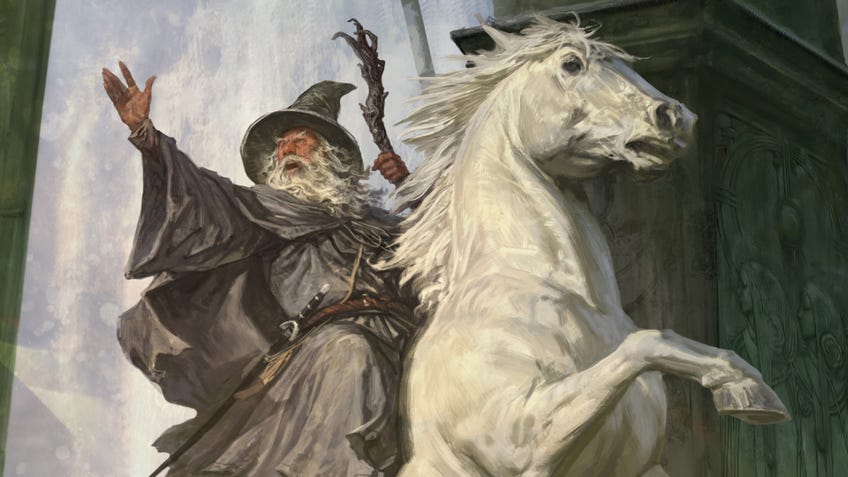SPONSORED: 5 ways The Lord of the Rings Roleplaying brings Middle-earth to D&D 5E
One Ring to roll them all.
This article is sponsored by Free League Publishing and The Lord of the Rings Roleplaying. Find out more and buy The Lord of the Rings Roleplaying and sourcebook Shire Adventures from Free League’s webstore.
Following in the footsteps of The One Ring’s standalone Second Edition rulebook released last year, The Lord of the Rings Roleplaying is bringing the world of Middle-earth to the familiar gameplay of Dungeons & Dragons.
While it’s packed with details on the land of Eriador in the time between The Hobbit and The Fellowship of the Ring, The Lord of the Rings Roleplaying is more than just a guide to the setting of Middle-earth.
The Dungeons & Dragons sourcebook adapts many of The One Ring’s new gameplay elements for use with 5E’s rules, helping to capture the unique atmosphere and feel of setting out with your own fellowship of companions on an epic adventure.
From magical items to new rules on journeying through places like The Shire to the Blue Mountains, and the ability to counsel with your trusted allies and make use of new character skills, The Lord of the Rings Roleplaying has plenty of familiar favourites and new surprises for Lord of the Rings fans and D&D players alike to discover. There’s even the option to play as a few familiar names, from Baggins to Brandybucks…
Journey there and back again
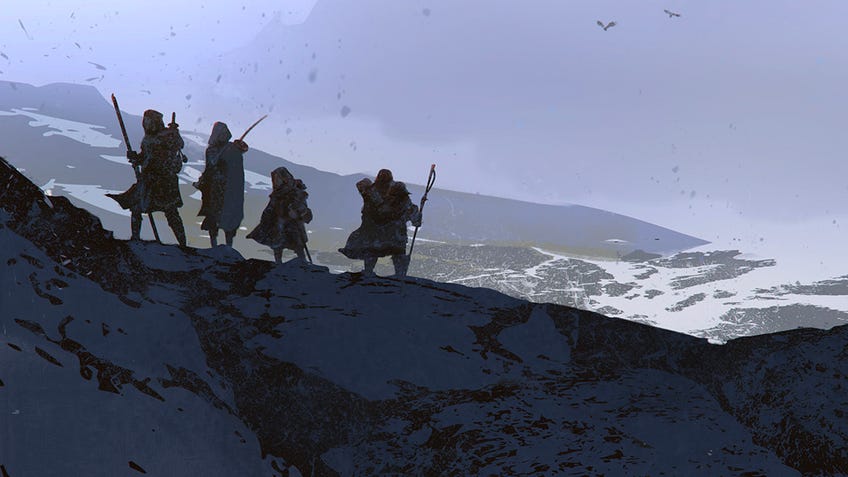
Whether it’s Bilbo’s unexpected journey to the Lonely Mountain in The Hobbit or Frodo’s epic quest to destroy the One Ring in the fires of Mount Doom, Middle-earth is a land of journeys. It’s only right, then, that any Lord of the Rings RPG makes travelling just as central to its players’ stories.
The Lord of the Rings Roleplaying brings the dedicated rules for Journeys found in The One Ring RPG to D&D 5E, making each trip to a new destination suitably dramatic and memorable. During each journey, characters are assigned specific roles - separate to their class - that have unique and important responsibilities. The Guide handles choices about the overall route and planning, the Hunter searches for food, the Lookout protects the group from surprise attacks, and the Scout looks for the most efficient trail to follow and best places to camp.
Along each journey (longer distances may require multiple journeys!), the party can run into various events as determined by the Loremaster - The Lord of the Rings Roleplaying’s DM figure. The types of events can depend on where the party is travelling, influencing the Loremaster’s roll on an events table. Possible events can range from positive discoveries to dangerous threats, affecting different members of the group depending on their role.
With the dedicated rules making each journey as important as the party’s next destination, The Lord of the Rings Roleplaying looks to bring the wandering spirit of the books to your next adventure.
Hold Council with your own fellowship
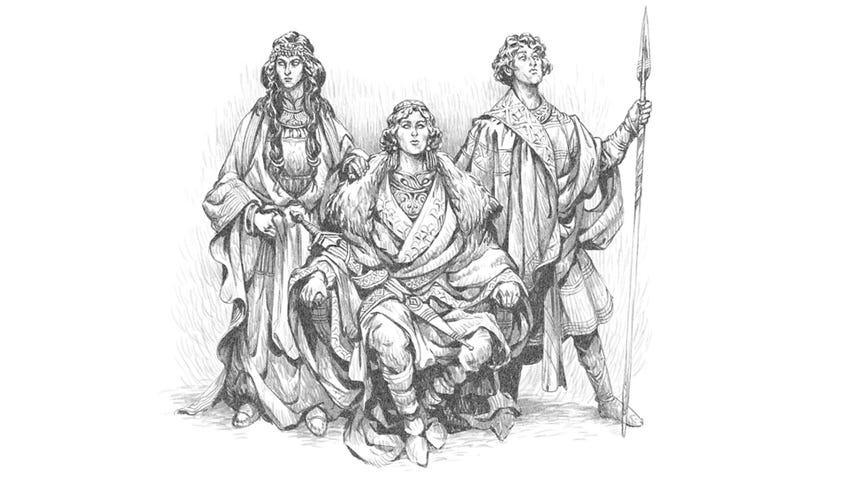
The council of Elrond in Rivendell is one of The Lord of the Rings’ most iconic scenes, as the Fellowship of the Ring is formed and decides what to do with The One Ring. Not every meeting has to have quite such high stakes, but even smaller gatherings can be just as central to your own party’s travels across Middle-earth in The Lord of the Rings Roleplaying.
The RPG includes dedicated rules on holding a Council - a discussion or debate that goes beyond your normal conversation in terms of formality and importance. During each council, the players’ characters attempt to win over their audience and achieve a stated objective - whether that’s sweet-talking an official of high importance or winning over the crowd at a hobbit birthday party.
As they introduce their companions and try to convince their audience of their goals, the players will need to make rolls to judge their success. Depending on the party and their aims, they could decide to impress people through their charisma and wisdom, or adopt a more underhanded approach via deception and even intimidation. The Loremaster will determine the number of successes they need based on whether the request is reasonable, bold or outrageous, and if the audience they’re addressing is reluctant, open or friendly in hearing them out.
A successful council can see the characters earn experience, just as they would from a fierce battle with swords instead of words. A partial success might complicate the outcome of the meeting - perhaps earning their desire at a steep price - while, in the worst cases, a disastrous council may even turn an individual or community hostile.
With councils so important to the party achieving their goals, The Lord of the Rings Roleplaying’s new rules make meetings just as tense and dramatic as combat.
Gain Magical Successes with rings of power and other enchanted items
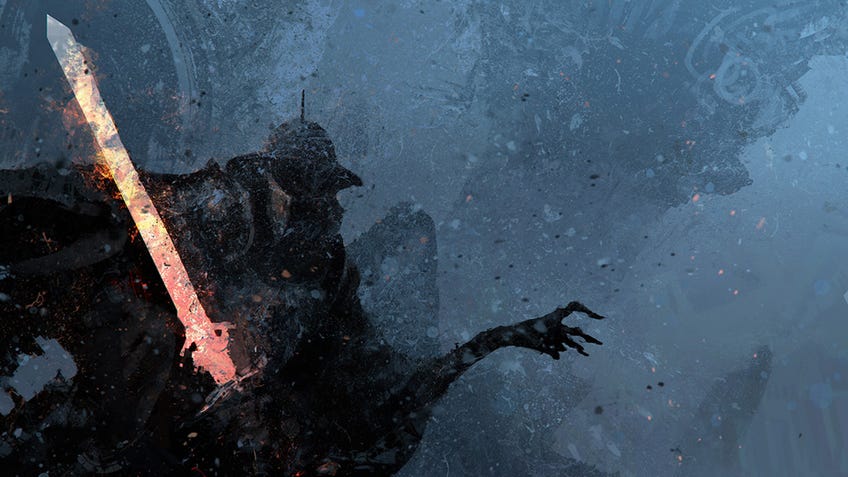
While there’s only One Ring, and you’re unlikely to stumble across a legendary ring of power on your travels unless you’re an especially lucky (and tricksy) hobbit, your characters can still make use of other magical items found around the world of Middle-earth.
Both talents and enchanted artefacts can grant characters magical successes during specific ability checks, bypassing the need to roll on a d20 with an automatic success - no matter what the difficulty or complications of the test might be. In short, a magical success is the same as rolling a critical hit on your die, symbolising an outcome that goes beyond a simple success.
You could find yourself fortunate enough to be gifted a magical layer of armour - a mythril shirt from a close relative, perhaps - or to discover a magical ring able to bestow otherworldly powers on your mortal adventurer.
The Lord of the Rings Roleplaying includes treasure tables and rules on creating famous weapons and armour - those known by a legendary name, such as Narsil or Sting - for the party to create their own legends with. Be wary, though - while many items can bring magical ability and enchantments, you may also stumble across those bound to a curse, granting power at a price…
Baffle enemies and gain insight with your Riddle skill
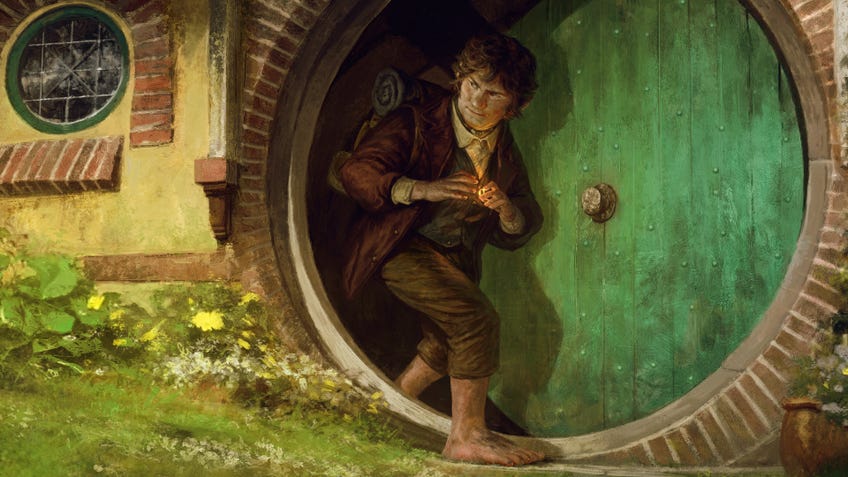
The Lord of the Rings Roleplaying allows players to create characters using many of the universal skills and abilities familiar from Dungeons & Dragons 5E. With the two fantasy RPGs having many elements in common, it’s easy to adapt a character idea from D&D 5E.
The Lord of the Rings Roleplaying does make some changes to D&D 5E’s list of skills, however. In keeping with the world and cultures of Middle-earth, Religion is removed, History becomes Old Lore and Survival is expanded into three dedicated tracks to allow characters to specialise in exploration, hunting and travel.
A brand new skill is introduced in Riddle, reflecting the widespread love of riddles among many of Middle-earth’s inhabitants (not to mention JRR Tolkien himself!) Perhaps most famously, Bilbo and Gollum played a riddle game in The Hobbit, with Bilbo’s wily question “What do I have in my pocket?” allowing him to escape with the One Ring.
The new Riddle skill allows players to similarly engage in a battle of wits with an opponent, making an Intelligence (Riddle) check to gain additional insight and information via their winding wordplay. The skill isn’t just useful in baffling would-be foes; it can also be used to connect the dots between bits of collected information by applying the same process of logical reasoning and intuition.
Tell new stories with some familiar names
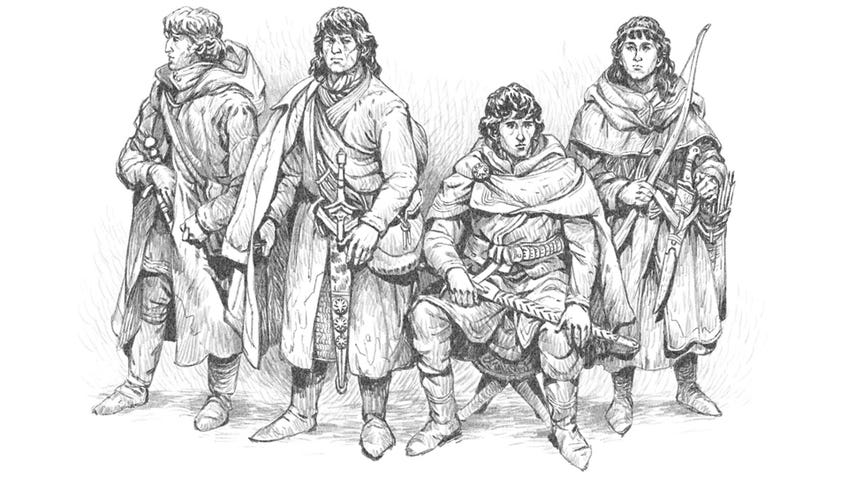
The Lord of the Rings Roleplaying takes place between the stories of The Hobbit and The Lord of the Rings that we’re all familiar with, giving players the chance to tell some new stories towards the end of Middle-earth’s Third Age.
While the timeline means that many of the characters seen in The Lord of the Rings are yet to make their appearance, The Lord of the Rings Roleplaying does allow players to run into - and in some cases, even play - some familiar names and faces from Tolkien’s stories.
Sourcebook Shire Adventures delves specifically into the history and culture of hobbits, spanning the region from Buckland to the four Farthings. Ideal for newcomers to The One Ring, D&D and roleplaying as a whole, the book includes a set of five adventures that can be played as a connected campaign or as standalone scenarios.
To help you on your way, the book also includes pre-made characters that players can pick up and play straight away. The characters include Bilbo Baggins himself - back from his quest to Erebor, but yet to mark his eleventy-first birthday - alongside the relations of some familiar hobbits in Drogo Baggins, Rorimac and Primula Brandybuck (soon to be Baggins), Esmeralda and Paladin Took, and Lobelia Bracegirdle.
Of course, players can also make their own original characters, using The Lord of the Rings Roleplaying’s core rulebook to choose from six Middle-earth cultures - including dwarves, elves, hobbits and rangers - and their callings, replacing the traditional classes of D&D with the likes of captains, champions, messengers, scholars, treasure hunters and wardens.
